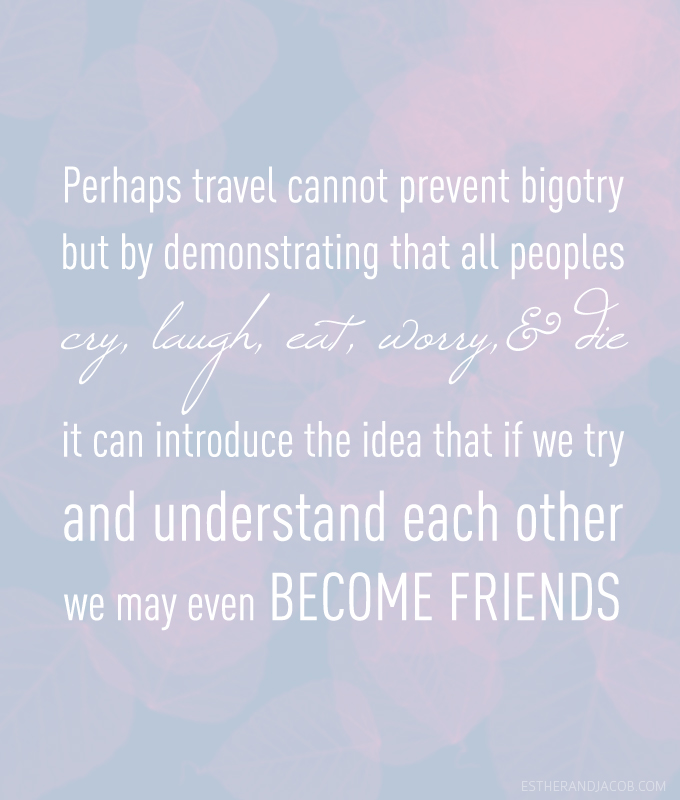
For the past few weeks I have been asking myself should I stay or should I go? An opportunity came up for us to go to do some Philippines disaster relief work and to capture photos and video footage of the relief work currently being done. I was actually unsure of how I even wanted to write this post or whether to post it, but I decided that for me, it has always been best that I am open, honest, and vulnerable when I want to counter my (sometimes crippling) fears. I have always dreamed about having a career as a photographer for humanitarian aid, but there are many questions I continue to wrestle with.

I am no doctor or nurse. I am merely a photographer. My knowledge is limited and so are my skills. I have ZERO experience with actual disaster relief. I may go there and find out that I’m completely useless, or worse, I’m becoming a hindrance to those who are working there long term. Like with any traditional job, nobody finds it worthwhile to train someone who is only going to be there temporarily. I realize that short term mission trips are designed to be more for us than the people we are going to help. The money might be better used if it were sent to aid the people who do have the skills and are committed to the community there longterm.

Photography can be a powerful tool and can be used for public awareness or for the exploitation of public sympathy. I think many photographers struggle with this when going to a developing country. I am always reminded of the pulitzer prize winning image of the dying sudanese child with a lurking vulture. I only recently discovered that the photographer had committed suicide a decade ago saying that he had seen too much in this world. I can’t imagine putting myself in his shoes. You think only soldiers have war trauma, so do those photographers who constantly have witness death and photograph it. Still, there is so much backlash that he should have saved the child or done something differently. I’m saddened that people continue to criticize from the sidelines. I wonder myself, if I had been there, would I even know what to do? In reality, not many of us are trained for this. It’s easy to criticize when these things happen far away from us, and it excuses us from having any responsibility.
I am not immune to these types of criticisms.
In a recent conversation with a friend, we were trying to figure out why it seems like the Philippines are already being forgotten, while Japan was in the media much longer. There probably are a number of reasons. Is it the miscalculation of the death toll? Is it because Japan can pick themselves up relatively quickly, and we can see the tangible effects of the rebuilding process and where our money is going? Or is it because Japan is a first world country and we can readily relate to them, while it seems all too familiar to see the Philippines in crisis?
Is it because we are constantly drawing lines between “us” and “them” that we can no longer relate on a human level?
I will admit that I have seen the ugliness of it in myself. I have done this after moving to LA and closed myself off from making many friends. I have trained myself to look for differences, instead of finding similarities to build bridges, and I’ve only recently started reversing this process. This is just one example, but there are days I have passed by the homeless and thought, “Why should I help? These people will always have the same ol’ problems, and nothing’s going to change.” It’s that quiet voice in my head that tells me to avoid eye contact and keep walking. It’s sad that I believe that I am different and that those differences separate me. If I just stopped to have a conversation, I might even find out how alike we really are. Not entirely related, but have you guys seen this homeless veteran transformation? I also want to meet this guy Leo!
What story do I tell?
I’ve given this a lot of thought, and I want my main mission to be capturing the individual and their “humanness”. I love Brandon Stanton’s photo series “Humans of New York.” I love how despite how different the people may appear from you, whether they are rich, poor, black, white, drag queens, homeless, etc, he’s able to tell their stories so that you can relate on a human level. That’s exactly what I want to do.

I know in the past people may have seen me as loud and outgoing, but maybe it’s a different season for me. I used to be the first one on the dance floor, but I’ve noticed now I’m more of a wallflower. I am also reluctant to talk to strangers. Even if I have a gift of telling stories through photography, I might be too afraid to ask for a photo. First, there’s a fear of rejection. Also, what if there is a language barrier? I think English is widely spoken, but it probably depends on the area.

It might not be the appropriate time to ask “What are your dreams?” and “What is the happiest moment of your life?” questions when they are in survival mode. Maybe it’s wrong to be going there to search for hope. I heard that to empathize with those dealing with trauma means you internalize it and experience trauma yourself.
It’s only one month away! Now, we just need to figure out all the logistics, which is a worry of its own. I’m pretty terrified but am praying that He is my strength where I am weak. I could definitely use more prayers (if you’re the praying type). :)


